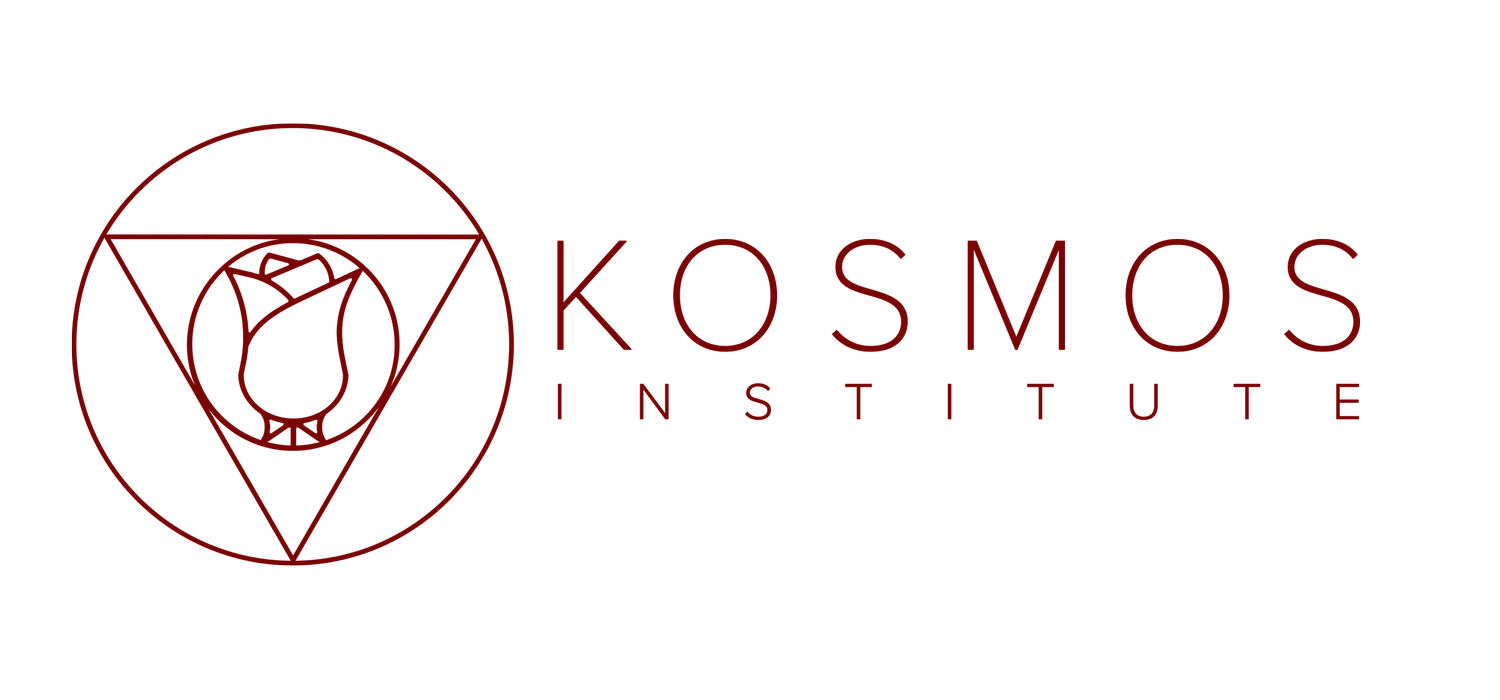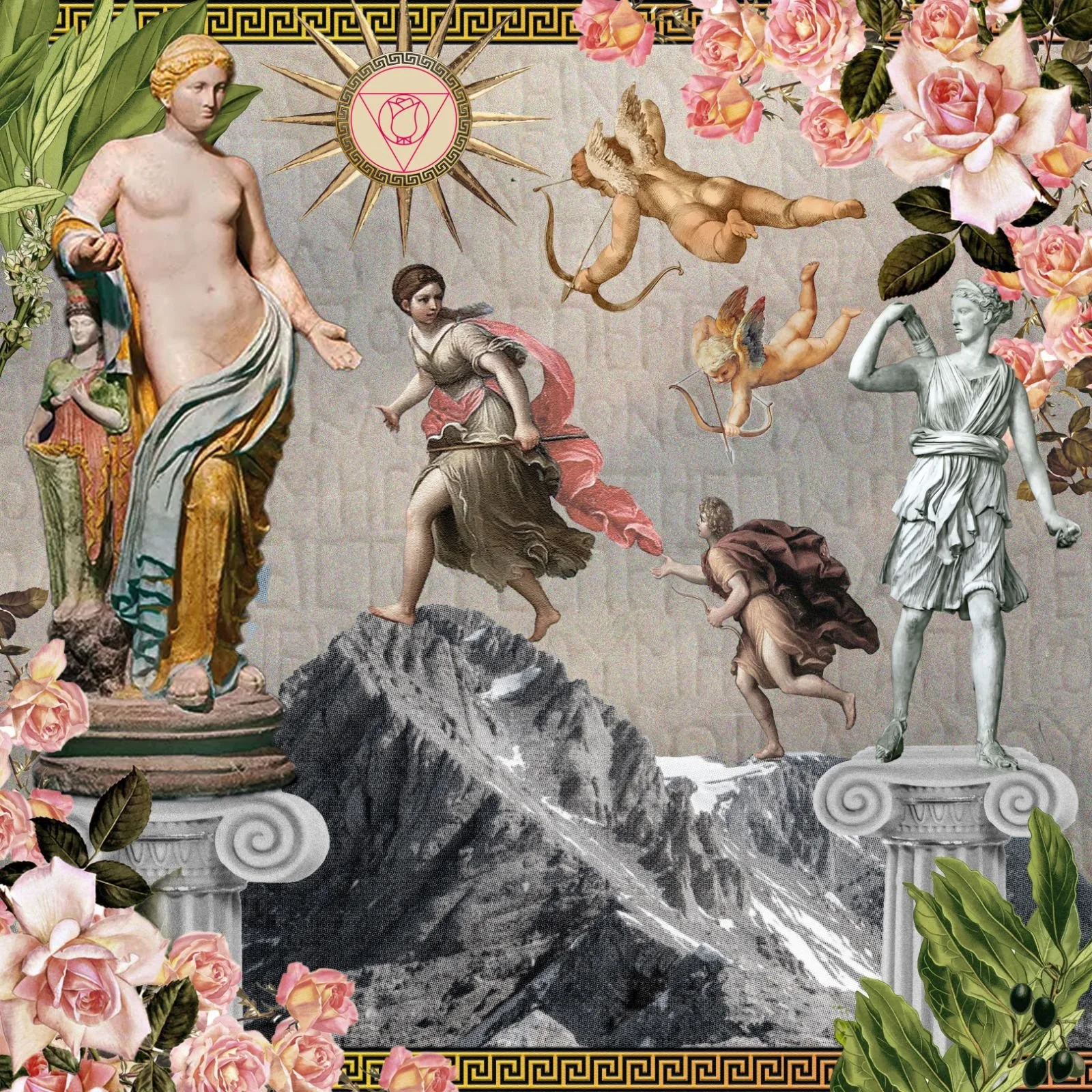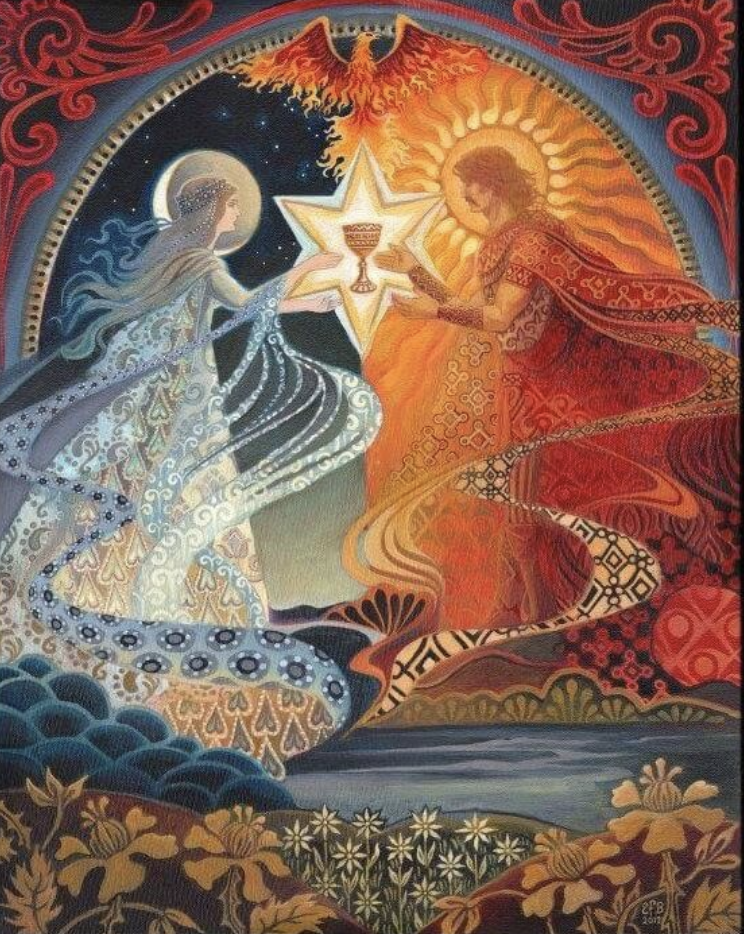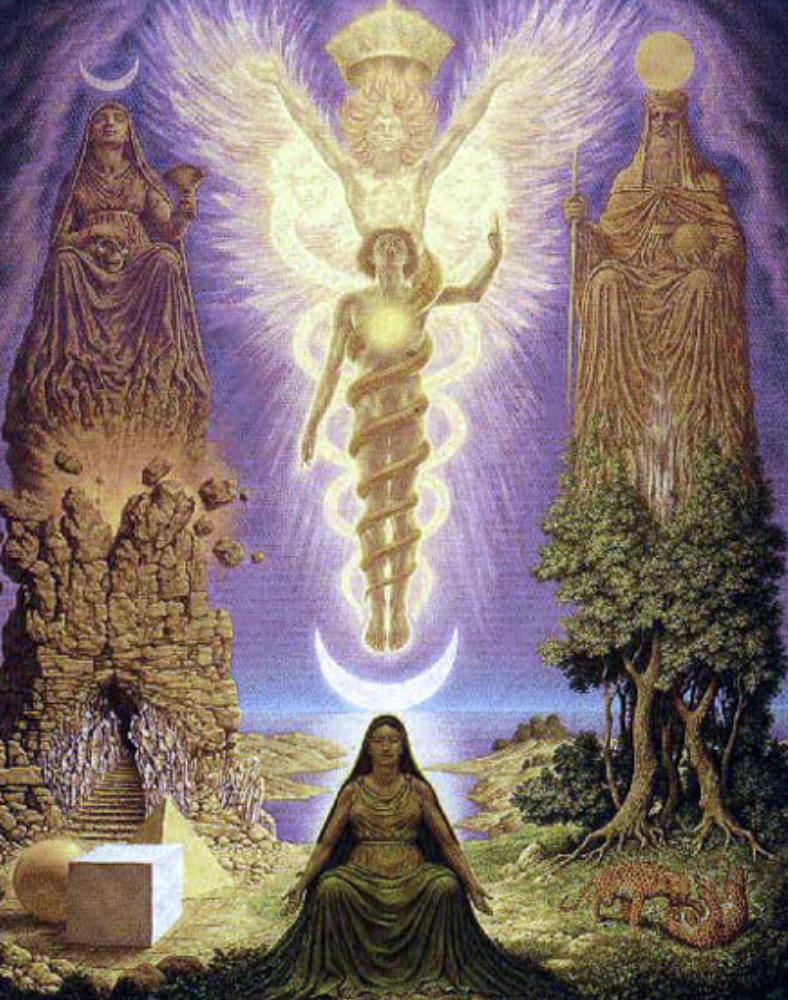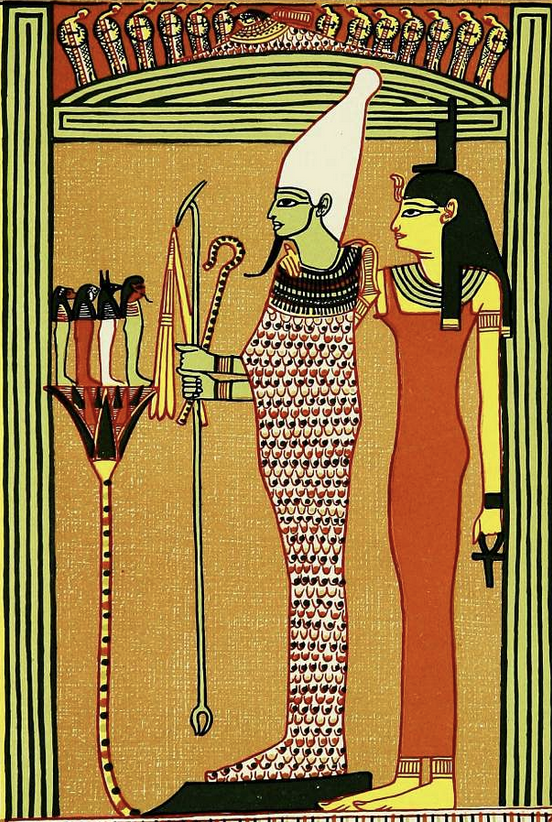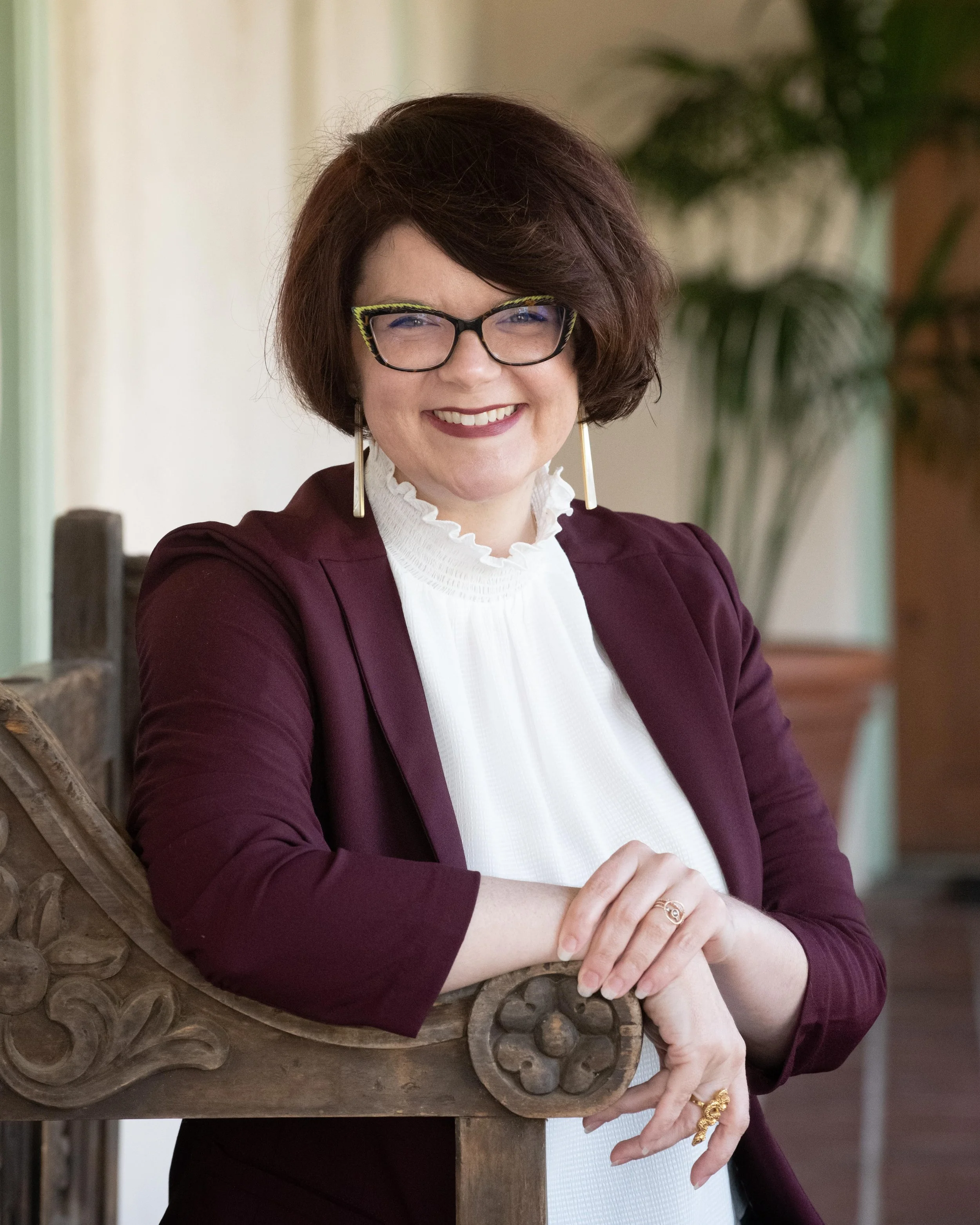Mythological Studies
Myth speaks in the voice of psyche. Through stories and images of larger-than-life forces personified as goddesses and gods, mythologies around the world tell of archetypal powers at play in the personal, planetary, and cosmic soul. Therefore, the more deeply you understand myth, the more deeply you understand yourself and the world. In a time when the trumpets of propaganda blare deafening lies from all sides—attempting to tell you who you are, what you think, and what to do—myth can help you cut through the noise and attune to the most important voice of all: the authenticity of your own inner wisdom—in other words, your soul. To hear that voice is the first step in transforming yourself from a bystander in your life to an active agent of confident, creative change.
Myth’s messages reveal themselves through what the French philosopher Henry Corbin (1903-1978) calls the “imaginal realm,” or the soul’s capacity to imagine sights, sounds, smells, and textures outside of and perhaps adjacent to the mundane or everyday world. The imaginal realm is the geography of the soul, a metaphorical “place” where you experience wonder, receive inspiration, and gain new knowledge and insight. The gifts of the imaginal realm can apply directly to the challenges of life.
Myth offers a sparkling avenue into the imaginal realm. To read a myth and imagine its events is to practice the art of visiting and thereby activating the imagination to access and learn from the soul’s wisdom. Many of myth’s messages, however, are not obvious at first glance. Myth speaks poetically through metaphors, resonance, image, and suggestion. Nor is myth inherently true or wise. The forces at play in the terrain of myth can be harmful, helpful, or both. What’s more, the term “myth” can also mean a lie that needs to be debunked. That’s why discernment is vital for all forays into myth and the imaginal. The term “myth” is a signal to pay attention because powerful fictions are in play that require heightened awareness. The opportunity is to allow myths to activate the imagination while staying alert for wisdom and for dangerous ideas cloaked in mythic metaphors.
From epic to scripture to movies to conspiracy theories, myths resonate deeply and take on a life of their own. The events of a myth may not be literally true, but metaphorically they represent soul experiences and soul beliefs. To study myth is to develop the faculty of seeing past the surface of mythic narrative to deeper meanings and associations. The more consciously you relate to myth, the less it can unconsciously control you, and the more you can influence how it shows up in your life and your work.
This three-year mythological studies curriculum at Kosmos Institute offers a sturdy pathway into serious academic engagement with the mythological pantheon of human cultures. At this time the first year of the curriculum is available for viewing and enrollment, the second and third years will be unveiled in due course.
Courses
Entering the Imaginal Realm: Myth, Metaphor, and Psyche Dr. Joanna Gardner
Summer 2025
Once Upon a Time: Wonder Tales of the Psyche Dr. Joanna Gardner
2026
Circling the Wine-Dark Sea: Myths of the Ancient Mediterranean Dr. Olivia Happel-Block
TBD
Honoring the Feminine Divine: Introduction to Goddess Studies Dr. Stephanie Zajchowski
TBD
Faculty
Dr. Stephanie Zajchowski
Stephanie Zajchowski, PhD, is a mythologist, writer, and teacher focusing on the multidisciplinary intersection of myth, religion, and women’s studies. She is a contributing author of Goddesses: A Skeleton Key Study Guide, as well as a regular contributor to the popular MythBlast essay series for the Joseph Campbell Foundation (jcf.org), a nonprofit organization dedicated to supporting the study of myth. Stephanie also serves as the director of operations for the Foundation and is a co-founder of the Fates and Graces, hosting webinars and workshops for the community of mythic readers and writers (fatesandgraces.com). Stephanie is passionate about researching, exploring, and sharing the stories of goddess figures that have been suppressed, forgotten, or obscured, bringing them back into the light. For more information on Dr. Zajchowski please visit stephaniezajchowski.com
Dr. Joanna Gardner
Joanna Gardner, PhD is a writer, mythologist, and magical realist whose focus areas include myth, creativity, wonder tales, and goddesses. Joanna serves as adjunct professor in Pacifica Graduate Institute's Mythological Studies program, and as director of marketing and communications for the Joseph Campbell Foundation where she also contributes to the popular MythBlast essay series. She is the author of The Practice of Enchantment: MythBlast Essays, 2020-2024 and lead author of Goddesses: A Skeleton Key Study Guide. Joanna also co-founded the Fates and Graces, hosting webinars and workshops for mythic readers and writers.
Dr. Olivia Happel-Block
Olivia Happel-Block, PhD, is a teacher, writer, and mythologist whose work explores classical Greece and Rome, alchemy, and religion. She teaches Mythology, Film Studies, and Santa Barbara City College dual enrollment English at Dos Pueblos High School in Goleta, California where she has taught since 2014. Her dissertation in Mythological Studies with an Emphasis in Depth Psychology analyzes a 1614 Latin alchemical text through the lenses of mythology, alchemy, and religion. She is a contributing author of Goddesses: A Skeleton Key Study Guide (2023) and has a forthcoming chapter in Advanced Unicorn Theory (anticipated publication 2025) on unicorns of the 1990s and what the unicorn can represent for us today. Olivia finds great joy in helping students to discover their own voice through their writing. She currently serves as the English Department Head at DPHS.
